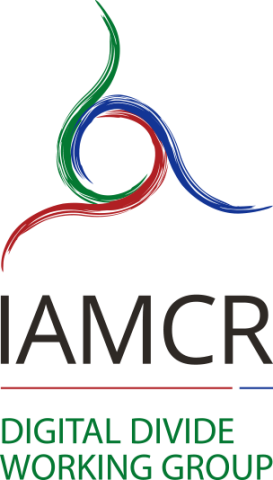
The Digital Divide (DID) Working Group of the International Association for Media and Communication Research (IAMCR) invites proposals for papers and panels for the IAMCR 2025 conference, taking place in Singapore from July 13 to 17, 2025, hosted by the Wee Kim Wee School of Communication and Information at Nanyang Technological University.
The deadline for submission is 7 February 2025, at 23h59 UTC.
See the list of all sections and working groups and their remits
See the CfPs of all sections and working groups
Conference Theme
Communicating Environmental Justice: Many Voices, One Planet
In an era defined by urgent environmental crises and deep social inequalities, the need for effective communication advocating for environmental justice is pressing. The 2025 IAMCR theme, “Communicating Environmental Justice: Many Voices, One Planet” underscores the importance of diverse perspectives from various stakeholders working collaboratively to tackle the challenges facing our planet.
Singapore, a vibrant city-state recognized for its cultural diversity and sustainability initiatives, offers an excellent context for this vital dialogue. Despite its small geographic size, Singapore faces significant climate vulnerabilities, such as rising sea levels and extreme weather. This conference aims to harness the multitude of voices reflecting its multicultural society, exploring how inclusive communication can engage different communities in advocating for equity and justice in environmental challenges.
Consult a detailed description of the main theme
Focus of the IAMCR Digital Divide Working Group
This call for papers invites contributions that examine the critical relationship between environmental issues and digital inequalities, specifically how disparities in access to information and communication technologies (ICTs) impact our capacity to address pressing environmental challenges. We encourage research that explores the digital divide, emerging forms of knowledge and information inequalities, and their broader societal implications. Submissions should consider the historical connections among media, technology, and audience engagement, along with the consequences of unequal media access.
Relevant Research Topics
We invite submissions investigating the intersections of environmental issues and digital inequalities, including but not limited to:
- The Digital Divide and Environmental Communication. Analyzing how unequal access to ICTs exacerbates environmental injustices and influences public engagement, with a focus on Digital Environmental Habitus and Digital Environmental Poverty.
- AI, Environmental Communication, and Inequality. Examining how AI technologies influence environmental communication and the potential implications for widening or bridging the digital divide.
- Environmental Journalism and the Digital Divide. Investigating how the digital divide shapes the reach, credibility, and impact of environmental journalism, and exploring strategies for improving access to information.
- Sustainability Campaigns and Digital Inequalities. Evaluating how digital technologies are employed in sustainability initiatives and their effectiveness in engaging marginalized communities affected by the digital divide.
- Digital Activism and Environmental Justice. Exploring how grassroots movements leverage digital tools to advocate for environmental justice and the role of digital inclusion in supporting impactful activism.
Key Topics for Proposals
Researchers are invited to submit proposals on any of the following topics:
- Digital Inequalities and Environmental Communication in the Global South
- The Intersection of Digital Divide and Artificial Intelligence within Environmental Contexts
- Case Studies of Digital Inequalities and Environmental Disparities
- The Role of Digital Inclusion in Furthering Environmental Justice and Social Inclusion
- Theories and Empirical Research on Digital Literacy and Environmental Awareness
- The Digital Divide’s Impact on Democracy and Environmental Advocacy
- Digital Capital as a Tool for Mitigating Environmental Inequalities
- Cross-Cultural Investigations of Digital Inequalities and Environmental Engagement
- The Role of the Digital Divide Across Cultures and Ethnicities in Environmental Communication
- The Effect of Digital Inequalities in Multi-Platform Environments on Environmental Movements
- Challenges and Solutions in Addressing Digital Inequalities in Environmental Journalism
- Emerging Beyond Conventional Understandings of Digital Inequalities in Environmental Contexts
- The Effects of the Pandemic and Post-Pandemic Era on Digital Inequalities and Environmental Issues.
We look forward to your contributions that foster critical dialogue and collaborative action in addressing the urgent challenges of environmental justice through the lens of digital inequalities.
Guidelines for abstracts
Abstracts must be submitted exclusively through IAMCR’s submission system from 3 December 2024 through 7 February 2025, at 23.59 UTC.
Abstracts submitted to the Digital Divide Working Group should be between 800 and 1000 words. It is expected that each person will submit only one abstract. However, no author’s name should appear on more than two abstracts, either individually or as part of any group of authors and authors should not submit more than one abstract to any single section or working group.
Proposals are accepted for both single papers and for panels with several papers (in which you propose multiple papers that address a single theme). Please note that there are special procedures for submitting panel proposals.
Statement on use of AI tools
IAMCR does not encourage or condone the use of generative AI tools to prepare abstracts submitted for consideration for our conferences. IAMCR values originality, integrity, and transparency in academic work, and believes that human-authored contributions best support rigorous and innovative scholarship in media and communication research. Should an author choose to use a generative AI tool in the preparation of an abstract, we require that they include a clear statement within their submission disclosing the tool's use. This statement must specify: (1) the name of any AI tool used; (2) how the tool was used in preparing the abstract, and; (3) the reason for using the tool. Failure to disclose the use of generative AI in accordance with these guidelines may impact the evaluation and acceptance of the submission.
Languages
Please note that the Digital Divide Working Group can only accept abstracts in English and can only arrange for presentations in English.
Deadlines and key dates
The deadline to submit abstracts is 7 February 2025, at 23.59 UTC. For other key dates see https://iamcr.org/singapore2025/keydates. Dates are subject to change.
Contacts
For further information about the Digital Divide Working Group, its themes, submissions, and panels please contact:
Co-chair: Anna Gladkova gladkova_a@list.ru (Lomonosov Moscow State University, Russia)
Co-chair: Massimo Ragnedda mragnedda@sharjah.ac.ae (Sharjah University, UAE).










